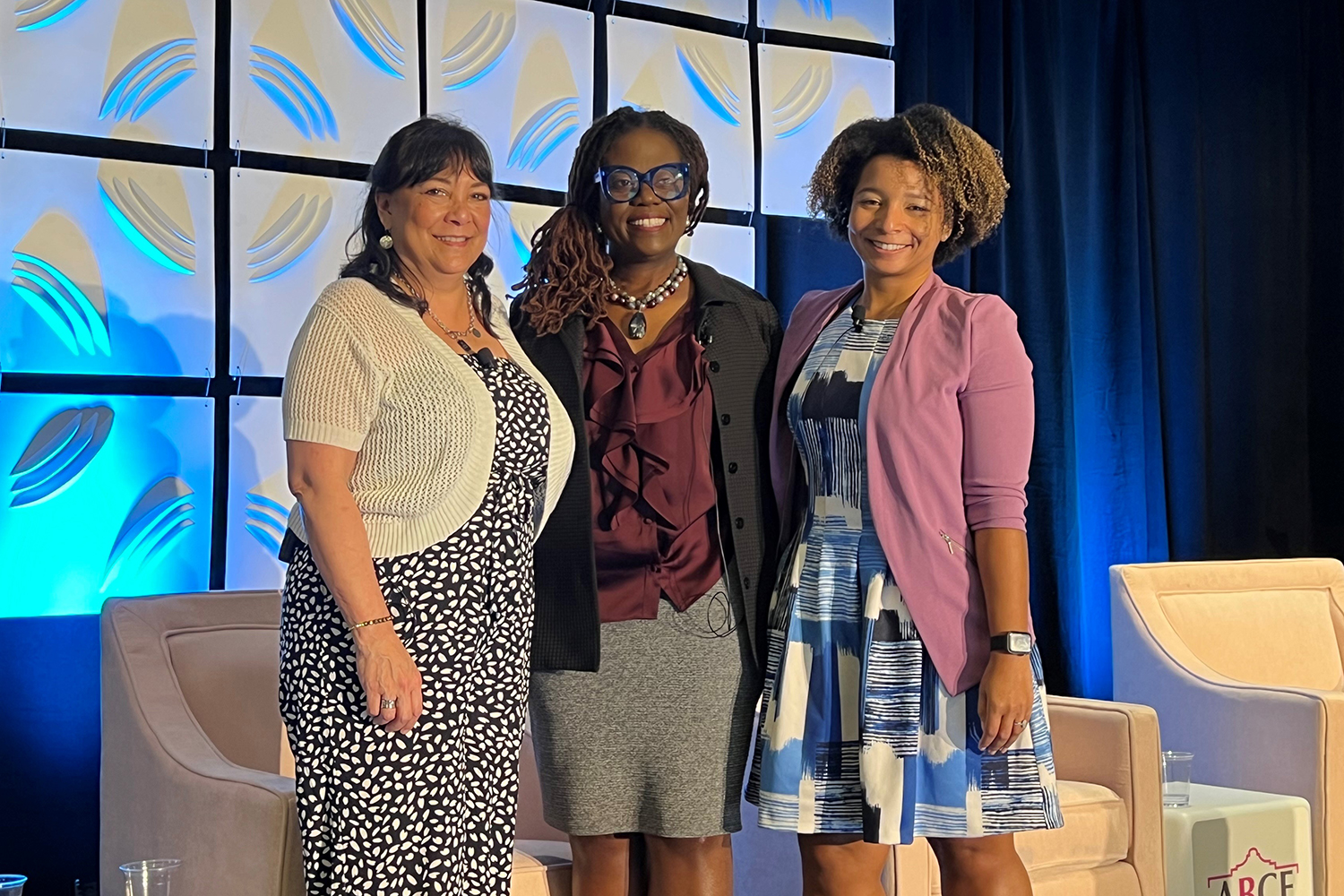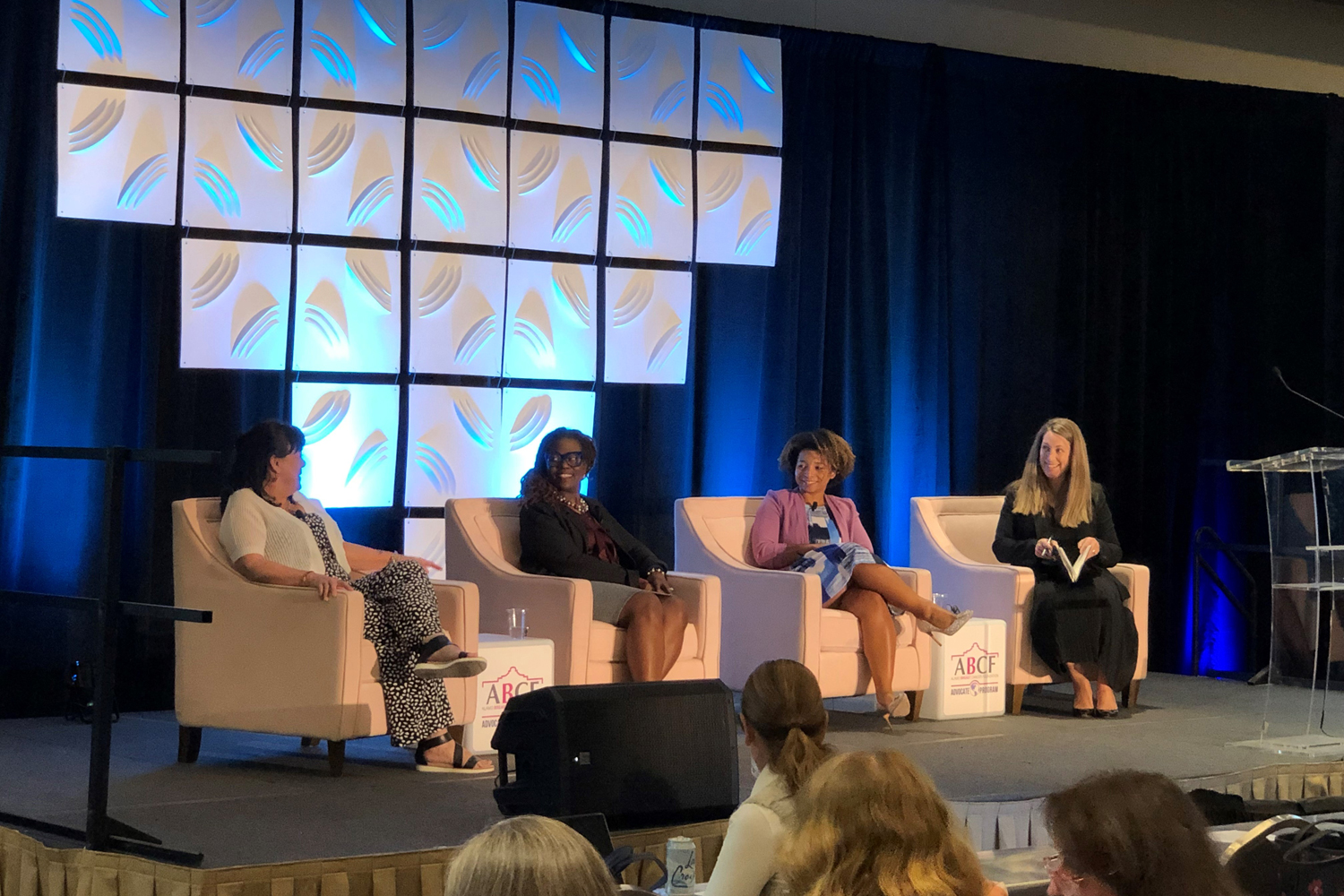PATIENT INVOLVEMENT is an inescapable fact of research, yet as the speakers at “Centering the Lived Experience: A Conversation on Patient-Partnered Breast Cancer” pointed out, study participants and others who live with the disease being studied are often sidelined when it comes to planning, designing and carrying out trials. Engaging people with lived experience is better for the research and the population studied, the speakers agreed.
The session was presented by the Alamo Breast Cancer Foundation (ABCF) and the American Association for Cancer Research (AACR) for patient advocates attending the San Antonio Breast Cancer Symposium (SABCS) held Dec. 5-9. (The AACR publishes Cancer Today.) Mya Roberson, a researcher at the University of North Carolina’s Gillings School of Public Health, along with patient advocates Lesley Glenn, the founder and CEO of Project Life, and Laura Crandon, the founder and president of Touch4Life, discussed the projects they have worked together on, the value of including patient advocates in research, and how research can include patients not merely as subjects but as contributors, partners and leaders.
For people who have been diagnosed with cancer, the presenters shared how collaborating on research can be a chance to have a say in what is being studied and the experience of the participants. Through these means, they can address the concerns that they and other patients have about cancer care and how they get to participate in research.
Glenn, who has been living with metastatic breast cancer for more than a decade, said she has long been concerned with quality-of-life issues for people with metastatic disease. She was interested in integrative medicine—an approach that includes things like yoga, acupuncture and art therapy along with conventional treatments in caring for cancer patients—but felt that she was often dismissed by researchers.
“We’re living longer, and those of us that have metastatic breast cancer, we want quality of life too. We want to stay alive, but I want to be able to spend time with my family,” Glenn said.
She connected with Roberson through Guiding Researchers and Advocates to Scientific Partnerships (GRASP), a program that connects patient advocates and researchers at scientific meetings like SABCS. Glenn and Roberson discussed the possibility of doing research together.
For Glenn it was an opportunity to look into the issues that she wanted to know about and see what others with metastatic breast cancer thought. “I wanted to see—you know, selfishly—if my idea was even credible. Am I barking up the wrong tree? What are we doing this for?”

Lesley Glenn, Laura Crandon and Mya Roberson at SABCS 2023. Photo courtesy of the AACR
Roberson and Glenn, along with other patient advocates from Project Life and GRASP, collaborated on “Re-imagining Metastatic Breast Cancer Care Delivery: A Patient-partnered Qualitative Study,” published Nov. 30 in Supportive Care in Cancer. In the study, people with metastatic breast cancer were interviewed about what cancer care would look like if they were able to redesign it. They identified three trends in what patients want, including better information, a change in the way providers and the public think about metastatic disease, and a more holistic approach to care. For Glenn, it was confirmation that the needs she identified in starting Project Life were warranted and were helpful to others who share her diagnosis.
For researchers, partnering with advocates brings in people with varied perspectives and experiences that can shape research questions and their approach to working with participants. Roberson shared an outreach flyer they used in the Supportive Care in Cancer study. “This is not the flyer that I would have come up with if left up to my own devices,” Roberson said. For one, she said, it’s not pink. In fact, the design leaves off traditional signs of gender. She listened to Glenn and others who have lived with metastatic disease. Instead of pink bows, the flyer uses clasped hands, and they chose a tagline, “Voice your experience,” that centered on the patients they were trying to reach.
One of the challenges to researchers was to make sure advocates who engage in these ways get compensated for their time. Roberson spoke about how Glenn and Crandon were really partners on the projects she worked on with them and that advocates who take on those roles should be paid appropriately. She discussed some of the barriers, due to stipulations from funders and policies at some centers, and suggested this as an issue that should be addressed at research centers.
As a takeaway, the presenters urged the audience not to be intimidated. Though not everyone will have the time or interest need to a co-investigator on a clinical trial, there are lots of ways for people who have or had cancer to participate that are within their ability and comfort level.
“Just get started,” Crandon urged. She spoke about the opportunities presented at scientific meetings like SABCS. She first introduced herself to Roberson after seeing her give a presentation at a meeting in Nashville in 2022. “It’s kind of as easy as that. You’re at a session, you’re curious, try going up to the person or asking them afterwards. It might be the opportunity to get the question that you need answered about the community that you serve,” she said.
Cancer Today magazine is free to cancer patients, survivors and caregivers who live in the U.S. Subscribe here to receive four issues per year.





